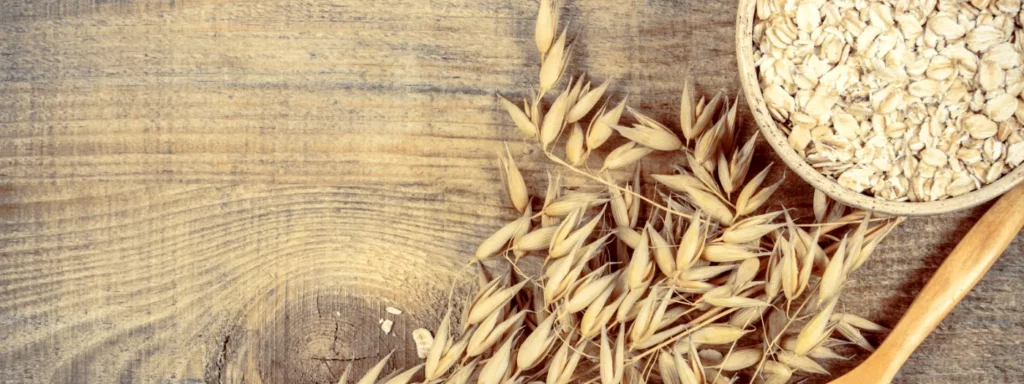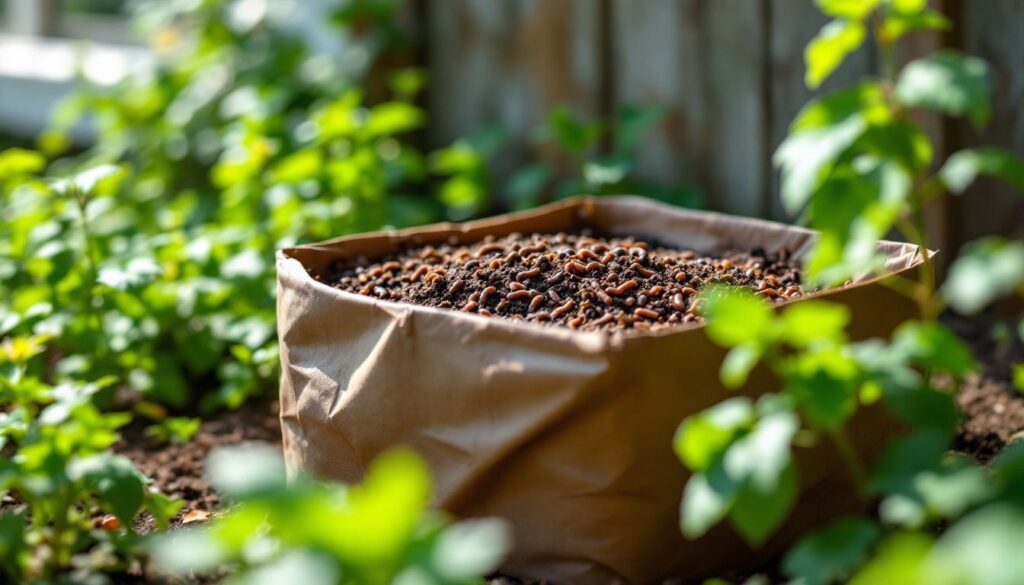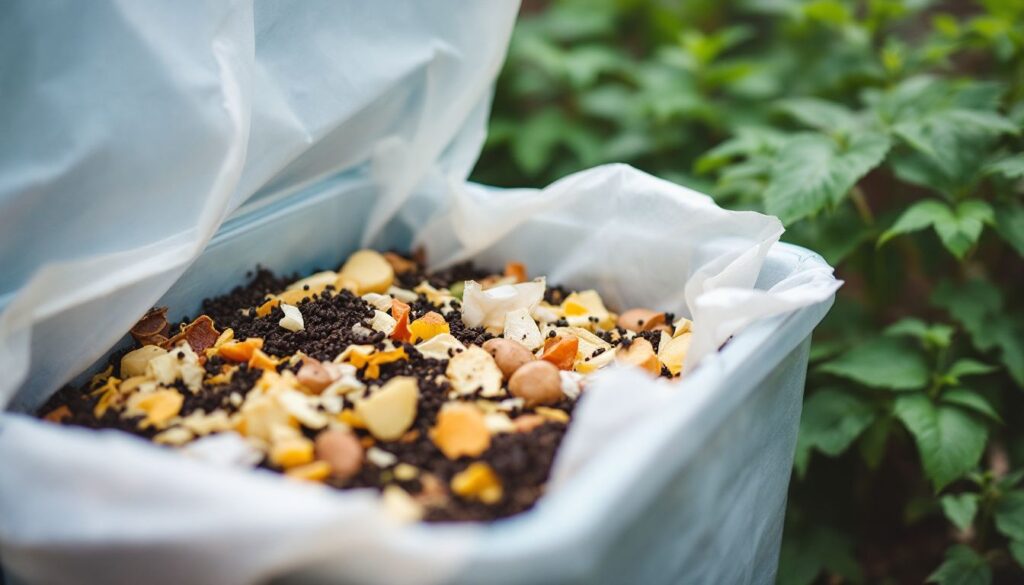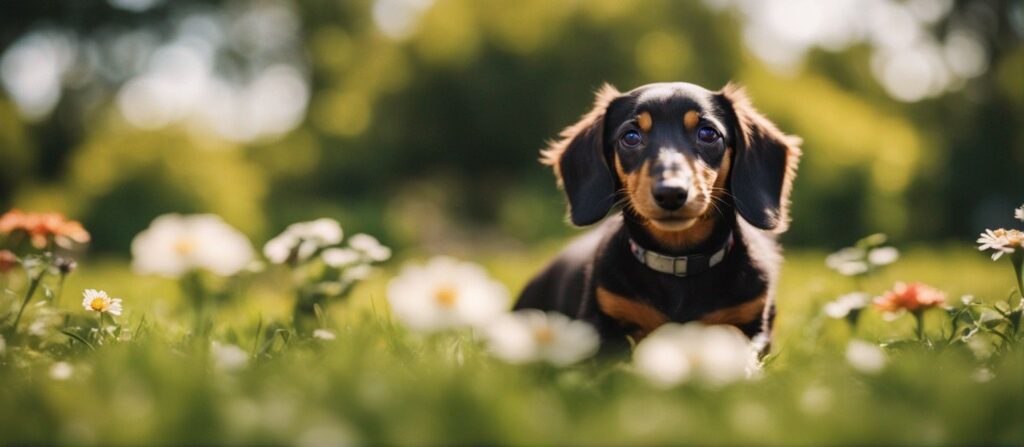
Got a dog and don’t know what to do with all the poop? Trust me, I’ve been there, dealing with pet waste doesn’t have to be an unpleasant chore. With earthworms at our disposal, we can effectively compost dog poop into nutrient-rich plant food for our gardens.
Dive in to uncover how this simple natural process could transform your garden and reduce waste!
Table of Contents
Is it safe to get rid of Dog Poop with worm composting?
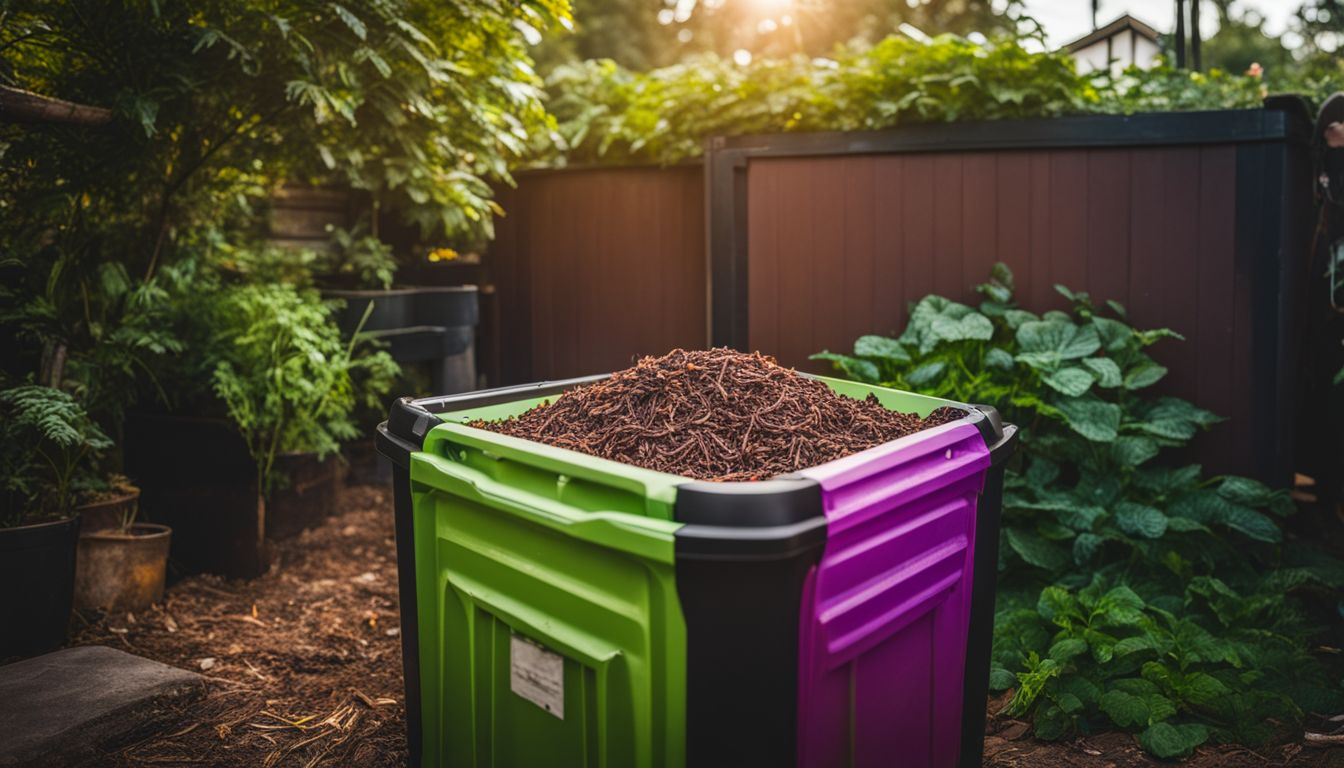
Indeed, it’s safe to compost dog poop using worms. This process is known as vermicomposting, where worms help break down the waste into nutrient-rich plant food. Much like other organic materials, dog poop serves as a suitable meal for composting worms. The key rule is do not use the resulting dog poo worm farm vermicompost (worm compost) for edible plants!
As they consume and digest it, these beneficial creatures transform the waste into worm castings – an incredibly fertile soil amendment loved by gardeners.
However, tackling safety goes beyond knowing that vermicicompsting is possible. While composting with worms can be very effective in breaking down pet waste such as dog poop, it’s crucial to do so properly to prevent harmful pathogens from surviving in the finished product.
Following specific steps and precautions will ensure that your worm-composted dog poop doesn’t pose any risk to you or your plants.
How to Compost Dog Poop: A Step-by-Step Guide
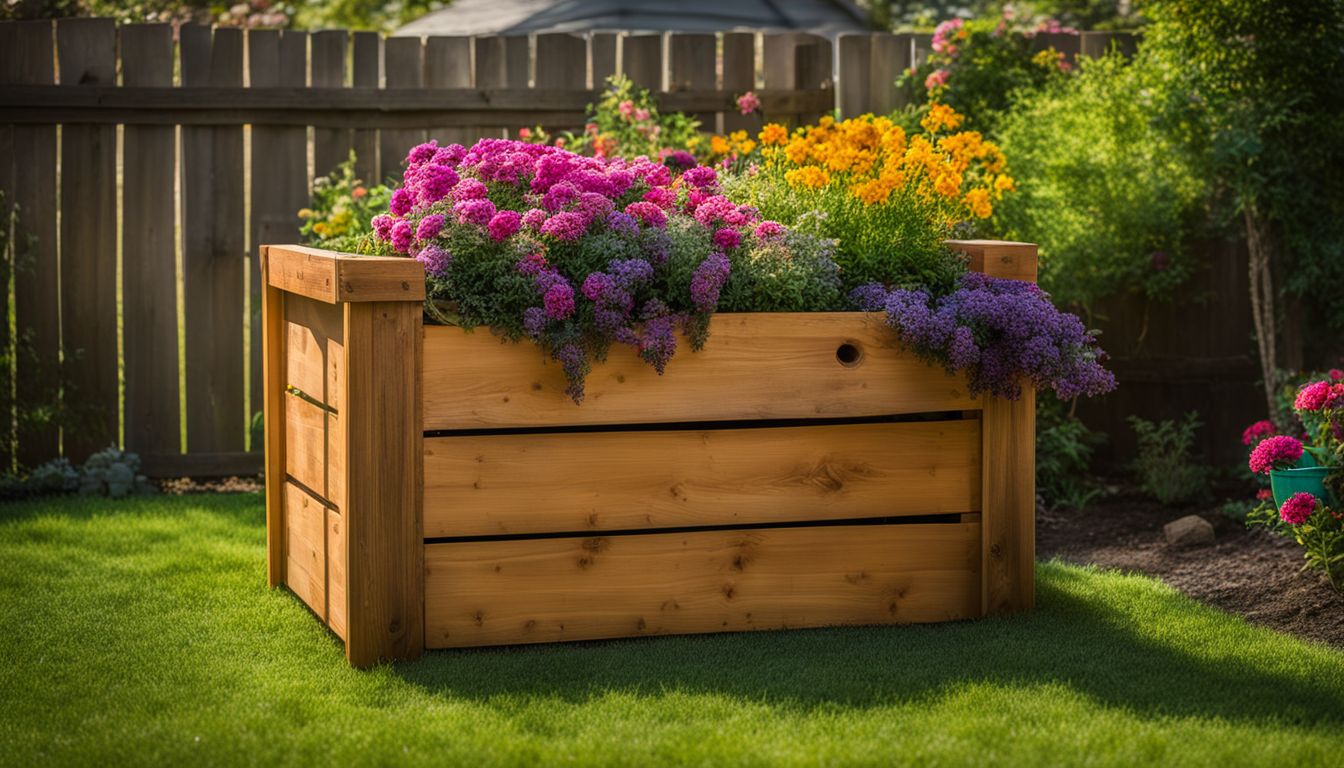
To compost dog poop, start by choosing the right container for your worm farm and setting up the composting area.
Choosing the right container
Selecting an apt container is a crucial step in starting your pet poo worm farm. Ensure the container holds enough space for fresh dog poop and comes with a layer of bedding at the bottom.
A suitable size is necessary, consider a larger one if you have more than one dog.
Be mindful that this composting bin should never be used for edible plants or fruits due to possible health risks. Aim to find a worm bin explicitly designed for handling pet waste as it simplifies the overall process and enhances safety measures.
Effective units often break down and compost dog poop into castings efficiently, preparing them to nourish non-edible areas of your garden. I have multiple worm composting bins for this very reason.
Setting up the dog poo worm farm
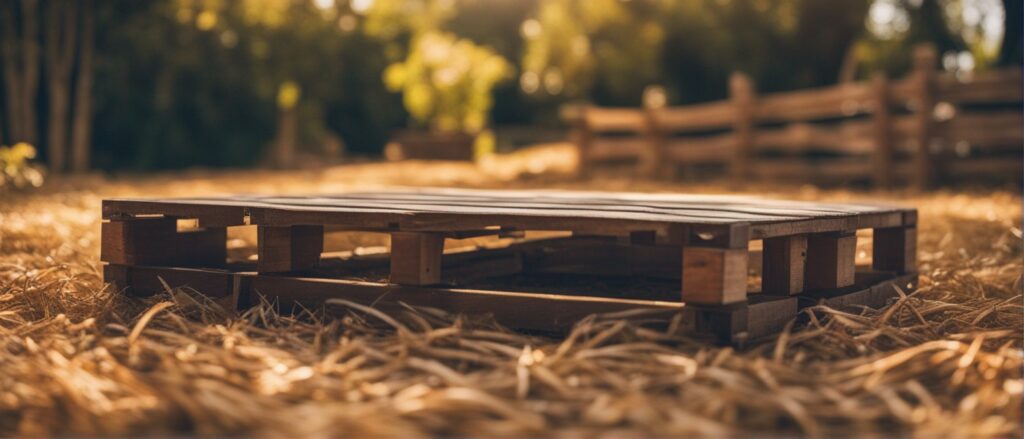
Select a suitable location in your yard that is easily accessible and away from direct sunlight. Your composting area should have good drainage to prevent the pile from getting too wet, which can hinder the breakdown process.
Lay down a layer of straw or a wooden pallet as the base to allow for air circulation. Add several handfuls of soil to give worms grit needed for digestion and introduce beneficial microorganisms into the system. If you already have some vermicomposting worms, then add them to the pile to get things started quicker. Otherwise, the worms will come on their own in time!
Remember, it’s crucial to maintain an optimum balance between green nitrogen-rich materials like dog poop and brown carbon-rich materials such as dry leaves or newspaper shreds in your pile for efficient breakdown by worms.
If you notice the pile compacting down, use a pitch fork to gently loosen the pile. This will help keep it oxygenated promoting aerobic decomposition while deterring foul odors and pests.
Feeding the worms
We feed the worms in our worm composting system a variety of organic waste. The worms are voracious eaters and can consume a range of materials such as fruit and vegetable scraps, coffee grounds, tea bags, and eggshells.
By adding dog waste to the mix, we’re providing them with an additional food source. The worms break down the organic matter through their digestive process, turning it into nutrient-rich worm castings.
It’s important to monitor the amount of dog poop we add to ensure that it doesn’t overwhelm the system. By feeding our worms regularly and in moderation, we can help create a healthy environment for them to thrive and produce valuable compost for our garden.
Troubleshooting common issues
If you notice a bad smell coming from your compost pile, it may be a sign of too much rotting waste and not enough moisture. Check the moisture levels and add water if necessary to keep it damp but not excessively wet.
Another common issue when you compost dog poop is flies or maggots in the compost, which can be controlled by burying fresh waste deeper into the pile and covering it with dry materials. If your compost isn’t breaking down properly, make sure you have enough worms in your worm farm or consider adding more bedding material to provide a better environment for decomposition.
Regularly checking and adjusting your compost pile will help ensure successful dog poop composting.
Harvesting the finished compost
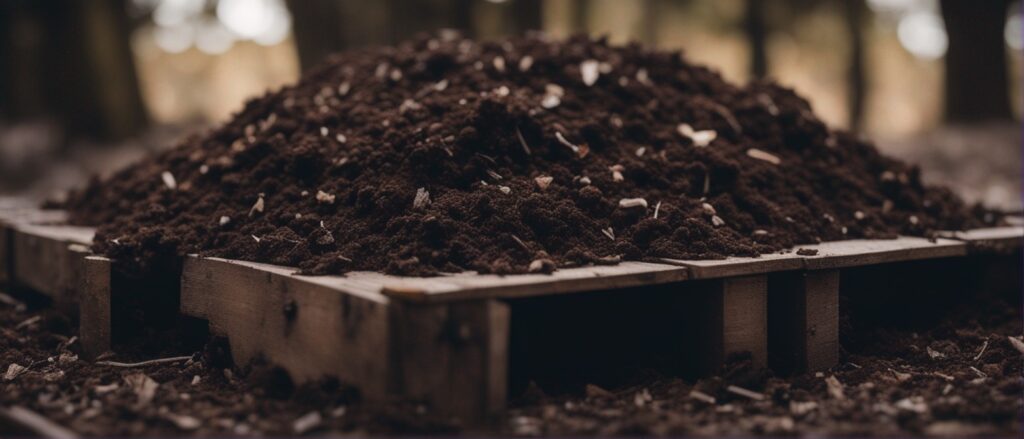
Harvesting the finished compost from your worm bin is an exciting and rewarding process. Typically, this is done every 3-6 months, depending on the size of your worm farm and how quickly it fills up.
To begin, you’ll need to carefully remove the top layer of bedding and set it aside. Then, using a small garden fork or your hands (wear gloves!), gently dig into the lower layers of the bin to find the dark, nutrient-rich castings.
Once you’ve located the castings, you can start harvesting them by scooping them out with a trowel or your hands. It’s important to be gentle during this process so as not to harm any worms that may still be present in the compost.
As you collect the castings, transfer them to a separate container for later use in your garden beds or potted plants.
Benefits of Worm Composting Dog Poop for the Garden
When you compost dog poop with worms, it can provide a range of benefits for your garden, including improved soil fertility, reduced waste and landfill usage, and natural pest control.
Improved soil fertility

Worm composting dog poop is a fantastic way to improve soil fertility in your garden. The process of vermicomposting produces a nutrient-rich organic soil amendment packed with essential plant nutrients and beneficial properties.
When you add compost worms to the mix, they help break down the dog poop and other organic matter even further, enhancing the composting process and enriching the resulting compost with valuable nutrients.
This nutrient-rich compost can then be used as a natural fertilizer for your plants, promoting healthy growth and improving overall soil quality. So, by incorporating worm composting into your gardening routine, you can achieve improved soil fertility and create a thriving garden ecosystem.
Reducing waste and landfill usage
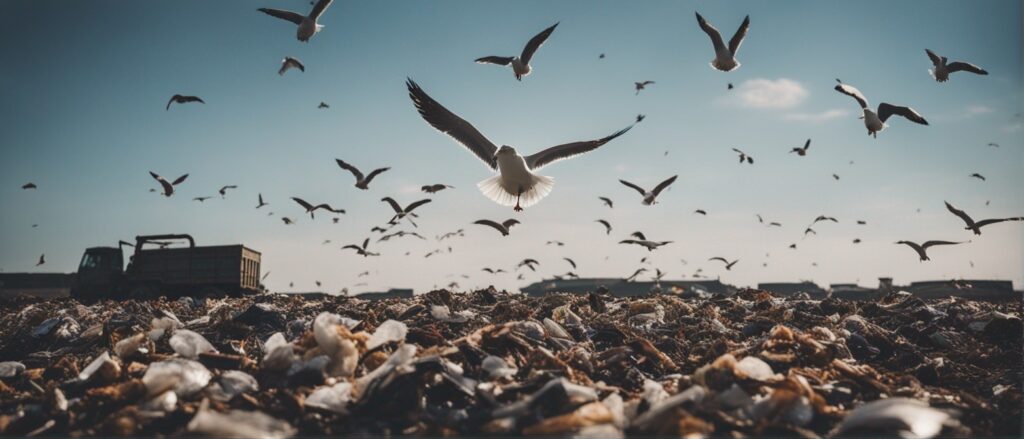
Worm composting is an effective way to reduce waste and minimize the amount of dog poop sent to landfills. By using worms to break down the organic matter, we can divert it from ending up in plastic bags that ultimately end up in landfill sites.
This not only helps to decrease the strain on landfills but also reduces greenhouse gas emissions associated with waste decomposition. It’s a simple yet powerful step towards achieving a more sustainable and environmentally friendly approach to managing dog waste.
Natural pest control
Worm composting not only helps to dispose of dog poop and organic waste, but it also provides a natural form of pest control in your garden. Worms consume the organic matter, including any pests or larvae that may be present in the dog poop.
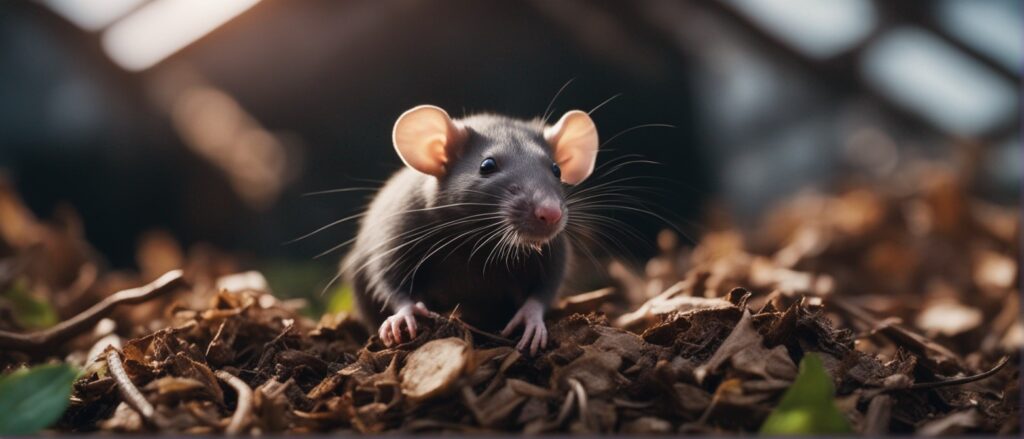
By breaking down the waste into nutrient-rich compost, worms create an environment that is less attractive to pests. This can help reduce the population of harmful insects and keep your garden healthier overall.
Plus, using worm castings as fertilizer can enhance plant health and promote resistance against pests and diseases naturally. So, by practicing worm composting, you are not only taking care of your garden but also implementing a sustainable method for controlling pests without relying on chemicals or harmful pesticides.
Tips and Recommendations for Successful Dog Poop Composting
Here are some tips to ensure you successfully compost your dog poop. Read more to learn how you can turn your pet’s waste into valuable nutrients for your garden.
Using a mix of dog poop and other organic materials for vermicomposting
We recommend using a mix of dog poop and other organic materials when composting. This combination will provide the right balance of nutrients and help speed up the decomposition process.
Adding materials such as fruit and vegetable scraps, coffee grounds, or shredded leaves can improve the overall quality of the compost. Remember to avoid adding any dairy products, meat, or oils as these can attract pests and slow down the composting process.
By creating a balanced mixture, you’ll be able to transform your dog’s waste into nutrient-rich compost for your garden.
Maintaining proper moisture and temperature levels
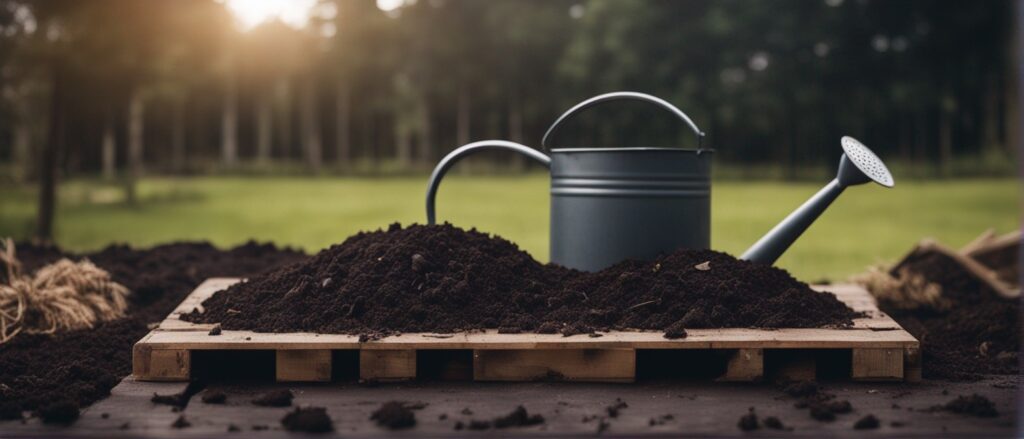
Proper moisture and temperature levels are essential for successful dog poop composting. It’s crucial to keep the temperature above 40° F or 4° C to prevent the worms from dying off.
On the other hand, excessive wetness should be avoided by maintaining a moist compost mixture ranging from 40-60%. This will help prevent unpleasant odors and ensure that the composting microorganisms can thrive and break down the waste effectively.
Remember to place your worm bins in a shaded area to avoid extreme temperature fluctuations and provide an optimal environment for composting. By maintaining these conditions, you can create nutrient-rich compost for your garden while reducing waste.
Regularly checking and adjusting the compost pile
We understand that regular maintenance is crucial to successful dog poop composting. It’s important to regularly check and adjust the compost pile for optimal decomposition. By monitoring the moisture levels, temperature, and turning the pile when necessary, you can create an ideal environment for the worms to break down the dog waste efficiently.
This not only ensures a safe and effective composting process but also helps mitigate any potential risks associated with odor or pests. Regularly tending to your compost pile will yield healthy soil amendments while reducing waste in a sustainable manner.
Precautions and Safety Measures for Using Composted Dog Poop and Pet Waste in the Garden
To ensure the safety of using composted dog poop in your garden, make sure that the poop has gone through proper composting and maturity processes.
Ensuring proper composting and maturity of the poop
To ensure proper composting and maturity of the dog poop, it is important to follow some key steps. First, make sure that the poop is mixed well with other organic materials like food scraps or yard waste to create a balanced compost pile.
This will help accelerate the decomposition process. Secondly, maintain proper moisture levels in the compost by regularly checking and adjusting as needed. Moisture helps bacteria and worms break down the waste efficiently.
Lastly, monitor the temperature of the compost pile to ensure it stays within the optimal range of 130-150°F (55-65°C). This heat kills any potential pathogens present in the dog poop.
Remember that proper composting takes time and patience. It can take several weeks or even months for dog waste to fully decompose and mature into nutrient-rich compost suitable for your garden.
Regularly turning or aerating the pile can speed up this process by providing oxygen for beneficial microorganisms.
Avoiding direct contact with edible plants
To ensure the safety of your garden and to prevent any potential contamination, it is important to avoid direct contact between composted dog poop and edible plants like vegetables and fruit trees. This is because dog waste may contain harmful pathogens and bacteria that could pose a risk to human health if consumed.
Instead, focus on using the composted dog poop in non-edible areas of your garden, such as flower beds or ornamental plants. By doing so, you can still benefit from the nutrients in the compost while keeping yourself and your family safe.
Remember to always prioritize the health and well-being of your garden when utilizing composted dog waste.
Complying with local regulations and guidelines.
We must comply with local regulations and guidelines when it comes to using composted dog poop in our garden. This is important to ensure that we follow proper precautions and safety measures.
Some stormwater pollution prevention plans may include specific guidelines for managing pet waste and its impact on the environment. It is also crucial to be aware of the waste management rules in our area, as dog poop can be composted or disposed of in green bins according to local regulations.
By complying with these guidelines, we can safely incorporate composted dog poop into our gardening practices while minimizing any potential environmental risks.
Conclusion
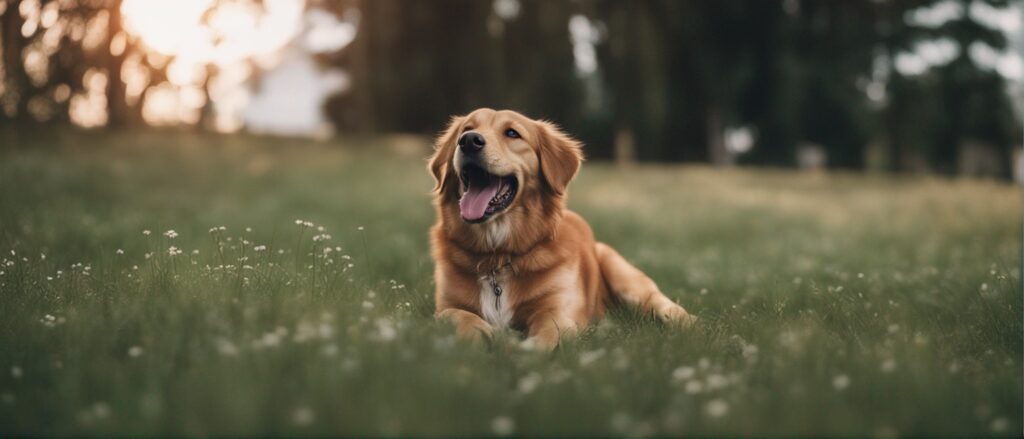
In conclusion, worm composting dog poop is a safe and effective way to turn waste into nutrient-rich soil for your garden. By following the step-by-step guide provided in this article, you can create a healthy and sustainable environment for your plants while reducing landfill usage.
So why not give it a try and see the amazing benefits of vermicomposting firsthand? Your garden will thank you!
FAQs
1. Can I use regular composting methods for dog poop?
No, regular composting methods are not recommended for dog poop as it can contain harmful bacteria. Worm composting is a safer and more effective way to dispose of dog waste.
2. How do I start worm composting dog poop?
To start worm composting dog poop, you will need a designated bin or composter, red worms are specifically suited for breaking down organic waste, and a mixture of bedding material like shredded paper, cardboard, coco-coir, hay or leaves.
3. Is it safe to use the resulting compost on my garden?
Yes, the resulting worm castings from composted dog poop are safe to use in your garden as long as the process is done correctly. We do not recommend using the resulting compost from your dog poop worm farm with any edible plants!
4. Are there any precautions I should take when worm composting dog poop?
When worm composting dog poop, it’s important to avoid using the resulting castings on edible plants or root crops. Additionally, ensure proper hygiene by washing hands thoroughly after handling pet waste or working with the composter.


